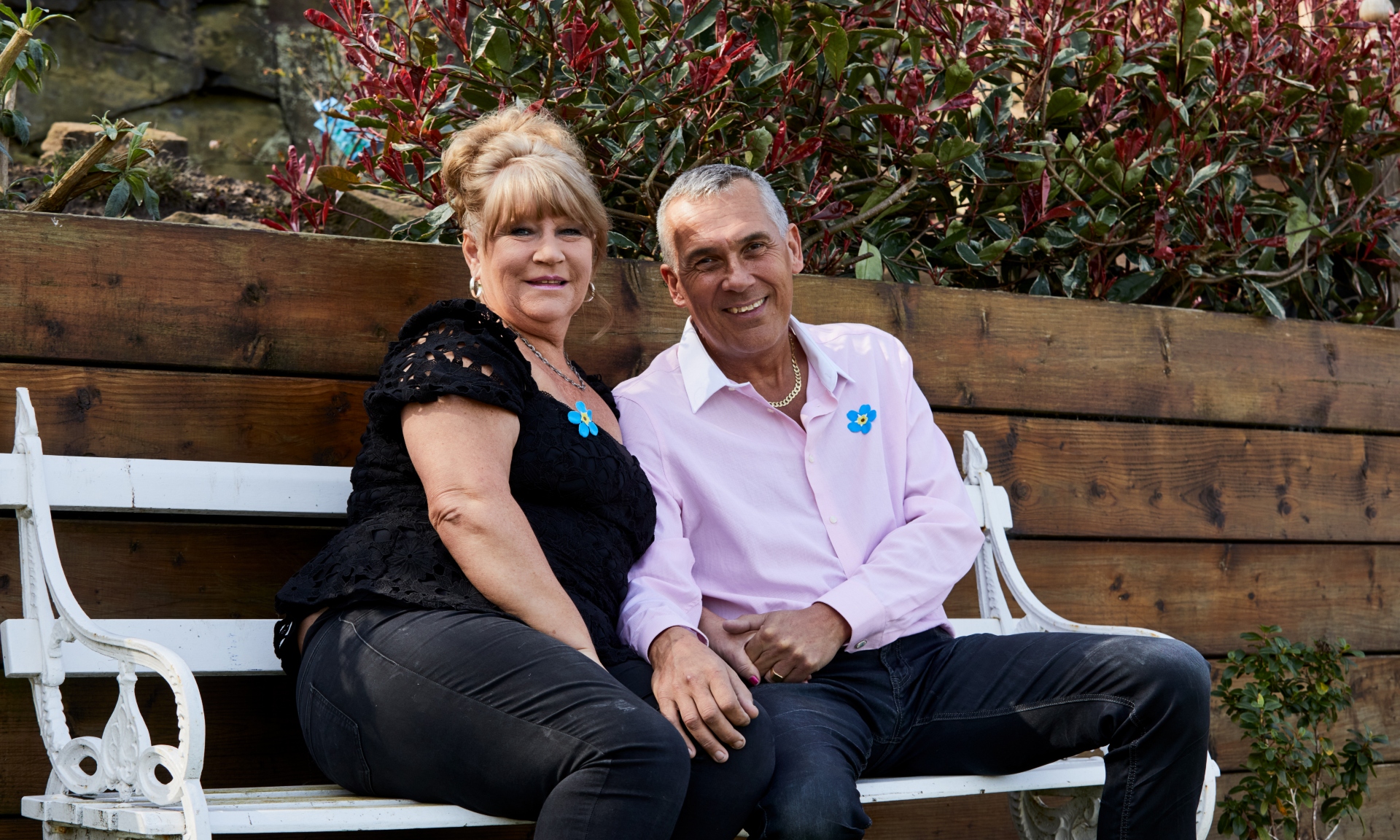I didn't think there was any suggestion of compulsion involved, it is just to ask any one who is interested to have a little patience.When she was still capable of going out on her own, or with me, my wife would have been livid to have been identified in this way. She did not need or want any special treatment because, in her opinion (the only one that counted) there was nothing wrong with her. To suggest otherwise was to stir up unnecessary trouble. To anyone denying - or oblivious to - their dementia, being asked to wear an identifier of any kind would seem like an insult.
You are using an out of date browser. It may not display this or other websites correctly.
You should upgrade or use an alternative browser.
You should upgrade or use an alternative browser.
What do you think of a hidden disabilities/dementia identifier?
- Thread starter HarrietD
- Start date
✅I agree with other posters, sunflower lanyards are useful in airport where they identify wearer, and usually accompanying escort, for special treatment.
Identifying somebody as having dementia in general public gives out an easily conned message and I think should be avoided.
✅When she was still capable of going out on her own, or with me, my wife would have been livid to have been identified in this way. She did not need or want any special treatment because, in her opinion (the only one that counted) there was nothing wrong with her. To suggest otherwise was to stir up unnecessary trouble. To anyone denying - or oblivious to - their dementia, being asked to wear an identifier of any kind would seem like an insult.
I bought two lanyards off the internet, one for myself a National Carers Card and one for Dad who has Alzheimer's, is an Alzheimer's awareness card with Hidden Disability on the cord. This has given me more confidence when walking with Dad in the town or on our walks down the docks, as people can generally be aware of a condition with our Lanyards around our necks when they approach us. Dad has a habit of just going up to people and say things quite out of the ordinary, leaving the poor person quite bewildered. The attachment shown is the front and on the other side is his name, address and contact number. mine is much the same
 but with a photo both of which I can't showdue to privacy etc.
but with a photo both of which I can't showdue to privacy etc.

 but with a photo both of which I can't showdue to privacy etc.
but with a photo both of which I can't showdue to privacy etc.Looking at some of the replies that you have received, how sad it is that the main objection is the fear of the wearer being subject to abuse or worse! Are people, some people, really that ignorant? I suppose the answer is, Yes, there are always those ready to take advantage of anyone they consider to be vulnerable a target to be exploited. My wife suffers from dementia, to date we have found people to be helpful and understanding. Although from past experience I do understand why people worry about the reaction of a few low life's. Keep with the forget-me-not. To wear it or not is always the individuals choice.
Like many, and quite correctly IMO, I worry about vulnerable people being identified and conned. The world is far nicer than we think, and most people are really decent given half a chance. But those who aren't can smell weakness a mile off, like sharks. And I include charity chuggers amongst that, with their carefully polished patter and big smiles. My Mum liked to chat and often came back with paperwork for things she didn't have the budget for.
But that's only the legal end of the vulnerable spectrum; the tip of the "niceberg". So there are no easy answers other than the hardest easiest answer to all dementia's many problems... being accompanied. All other answers are a fudge that eventually let the person with dementia down.
This was my solution when chaperoning; I don't remember where I got it... possibly from the A.S. rep who came to see us early on to tell us what was (and mostly wasn't) available locally. I could casually show it to people who might be confused by Mum's behaviour. I felt bad "outing" her like that sometimes, but sometimes it was necessary so she got the responses she needed rather than responses which would only make things worse.
But that's only the legal end of the vulnerable spectrum; the tip of the "niceberg". So there are no easy answers other than the hardest easiest answer to all dementia's many problems... being accompanied. All other answers are a fudge that eventually let the person with dementia down.
This was my solution when chaperoning; I don't remember where I got it... possibly from the A.S. rep who came to see us early on to tell us what was (and mostly wasn't) available locally. I could casually show it to people who might be confused by Mum's behaviour. I felt bad "outing" her like that sometimes, but sometimes it was necessary so she got the responses she needed rather than responses which would only make things worse.
Attachments
I have a forget-me-not badge on my flat cap along with a Yorkshire badge. I wear the cap when I am out and get alot of positive comments from people in the streets and shops. Lanyards are ok, my wife wears one, but they don't say what the hidden disabilities are. The dementia friendship campaign was very good this just needs to carry on with more advice on the forget-me-not badge.
Got to say that's an excellent post, @Andrew_McP, I agree with every word.Like many, and quite correctly IMO, I worry about vulnerable people being identified and conned. The world is far nicer than we think, and most people are really decent given half a chance. But those who aren't can smell weakness a mile off, like sharks. And I include charity chuggers amongst that, with their carefully polished patter and big smiles. My Mum liked to chat and often came back with paperwork for things she didn't have the budget for.
But that's only the legal end of the vulnerable spectrum; the tip of the "niceberg". So there are no easy answers other than the hardest easiest answer to all dementia's many problems... being accompanied. All other answers are a fudge that eventually let the person with dementia down.
This was my solution when chaperoning; I don't remember where I got it... possibly from the A.S. rep who came to see us early on to tell us what was (and mostly wasn't) available locally. I could casually show it to people who might be confused by Mum's behaviour. I felt bad "outing" her like that sometimes, but sometimes it was necessary so she got the responses she needed rather than responses which would only make things worse.
It seems to me that a PWD who could still go out on their own would be in the early stage. They would surely have enough self awareness to not need anything around their neck.
Wouldn't they be able to tell anyone who needed to know or at least have a card secreted in their pocket?
Anyone who didn't have such self awareness shouldn't really be out on their own.
Similar to @northumbrian_k 's wife, my mother (now firmly in the mid stage) would be absolutely mortified to wear a lanyard telling the world about her condition.
my husband still goes out on his own on the bus or the shops. he does have a card in his wallet. he sometimes gets into difficulties when something doesnt go to plan like the taxi left without him or its a bit busy but my number is the first in his phone. he can phone and i can sort it out or calm him. hes got on the wrong bus. im actually house bound so i cant go out with him on a regular basis so i reduce the risks as much as i can by putting strategies in place. he only goes to mens shed twice a week most of the journey is in taxi. thats my only break and we dont have carers. he still wants his independence so i manage the risk including having a bag cross his body to his front so it will be very hard to take his wallet. he has had this happen before so worked out what would work to minimise it happening again. a calculated risk.Got to say that's an excellent post, @Andrew_McP, I agree with every word.
It seems to me that a PWD who could still go out on their own would be in the early stage. They would surely have enough self awareness to not need anything around their neck.
Wouldn't they be able to tell anyone who needed to know or at least have a card secreted in their pocket?
Anyone who didn't have such self awareness shouldn't really be out on their own.
Similar to @northumbrian_k 's wife, my mother (now firmly in the mid stage) would be absolutely mortified to wear a lanyard telling the world about her condition.
I completely understand, @jennifer1967 . It's a shame someone from 'men's shed' can't pick him up and drop him off again. But a taxi is the next best. Wishing you well.my husband still goes out on his own on the bus or the shops. he does have a card in his wallet. he sometimes gets into difficulties when something doesnt go to plan like the taxi left without him or its a bit busy but my number is the first in his phone. he can phone and i can sort it out or calm him. hes got on the wrong bus. im actually house bound so i cant go out with him on a regular basis so i reduce the risks as much as i can by putting strategies in place. he only goes to mens shed twice a week most of the journey is in taxi. thats my only break and we dont have carers. he still wants his independence so i manage the risk including having a bag cross his body to his front so it will be very hard to take his wallet. he has had this happen before so worked out what would work to minimise it happening again. a calculated risk.
I often see the sunflower Lanyard in my Tescos and understand what it means. Especially when waiting to be served.
I would be very interested in knowing what the criteria would be for receiving a badge (or similar) with the logo on it. I like the Alzheimers flower logo and think that would be good to use on a badge.
I would be very interested in knowing what the criteria would be for receiving a badge (or similar) with the logo on it. I like the Alzheimers flower logo and think that would be good to use on a badge.
I would be very interested in knowing what the criteria would be for receiving a badge (or similar) with the logo on it. I like the Alzheimers flower logo and think that would be good to use on a badge.
The forget me not logo badge is meant to indicate support for the Alzheimer's Society not that the wearer has Alzheimer's

What do the different badges for dementia mean?
Following some confusion over what different blue flower badges represent, here we tackle some common myths about their meaning, who can wear blue flower badges and why.
Other badges are available.
To us, the forgt me not logo is obvious, to others its just a pretty pin I think.
When admitted to hospital, a butterfly symbol is used ( or should be/can be/may be)
I think the sunflower landyard covers us- hidden disability? Yup.
You dont HAVE to have a card on the end,
Kep cards in pockets/Wallets/purses/ handbags for emergencies
When admitted to hospital, a butterfly symbol is used ( or should be/can be/may be)
I think the sunflower landyard covers us- hidden disability? Yup.
You dont HAVE to have a card on the end,
Kep cards in pockets/Wallets/purses/ handbags for emergencies
When admitted to hospital, a butterfly symbol is used ( or should be/can be/may be)
The Butterfly Scheme | Reaching out to people with dementia and to anyone needing memory support
Reaching out to people with dementia and to anyone needing memory support Please click on the option below that applies to you. Latest News & Events
I don't think enough mentally healthy people know enough about dementia. It is generally known that dementia affects or can affect someone's memory, speed of speech, or difficulty recalling the right word at the right time, etc., and that it is progressively deteriorating.
When my wife was diagnosed with Alzheimer's, she said in no uncertain terms that she didn't like that word nor the word Dementia. She did not want me to tell anyone that she'd been diagnosed. However, as time went on, she didn't dislike being told she had "tangles" in her brain that affected communication; and as time went on she realised she had deteriorated in what she could do, and so she accepted my view, that is, to tell people so that they would better understand how to deal with her and answer her sometimes incoherent questions.
It was at that stage that I found out many of the family and our friends (who often said they knew someone with dementia) did not realise that this disease affected not only my wife's memory and recollections, and word finding, but also her concentration (so she couldn't read novels), her co-ordination (so she couldn't write or play the piano or guitar to her previous high standards), her confidence (because of these other "couldn'ts"). Mobility and steadiness and standing for any length of time became an issue.
Everybody "knew" Alzheimer's and Dementia was a mental health illness and issue, but none realised it is a physical illness that affects mental impairment.
My wife would not have wanted to wear a lanyard or bracelet that would have identified her as different to "normal" people as initially she didn't want to be differentiated. Later in the downward progression of the illness such a symbol might make sufferers a target for the unkind and dishonest, rather than as someone to help. A person who is vulnerable doesn't in my opinion want to advertise that.
When my wife was diagnosed with Alzheimer's, she said in no uncertain terms that she didn't like that word nor the word Dementia. She did not want me to tell anyone that she'd been diagnosed. However, as time went on, she didn't dislike being told she had "tangles" in her brain that affected communication; and as time went on she realised she had deteriorated in what she could do, and so she accepted my view, that is, to tell people so that they would better understand how to deal with her and answer her sometimes incoherent questions.
It was at that stage that I found out many of the family and our friends (who often said they knew someone with dementia) did not realise that this disease affected not only my wife's memory and recollections, and word finding, but also her concentration (so she couldn't read novels), her co-ordination (so she couldn't write or play the piano or guitar to her previous high standards), her confidence (because of these other "couldn'ts"). Mobility and steadiness and standing for any length of time became an issue.
Everybody "knew" Alzheimer's and Dementia was a mental health illness and issue, but none realised it is a physical illness that affects mental impairment.
My wife would not have wanted to wear a lanyard or bracelet that would have identified her as different to "normal" people as initially she didn't want to be differentiated. Later in the downward progression of the illness such a symbol might make sufferers a target for the unkind and dishonest, rather than as someone to help. A person who is vulnerable doesn't in my opinion want to advertise that.
Thanks for that nitram - a great help.The forget me not logo badge is meant to indicate support for the Alzheimer's Society not that the wearer has Alzheimer's

What do the different badges for dementia mean?
Following some confusion over what different blue flower badges represent, here we tackle some common myths about their meaning, who can wear blue flower badges and why.www.alzheimers.org.uk
Other badges are available.
Similar threads
- Replies
- 4
- Views
- 320
- Replies
- 2
- Views
- 380
- Replies
- 0
- Views
- 365
- Locked
- Sticky
- Replies
- 0
- Views
- 253
- Replies
- 8
- Views
- 558

